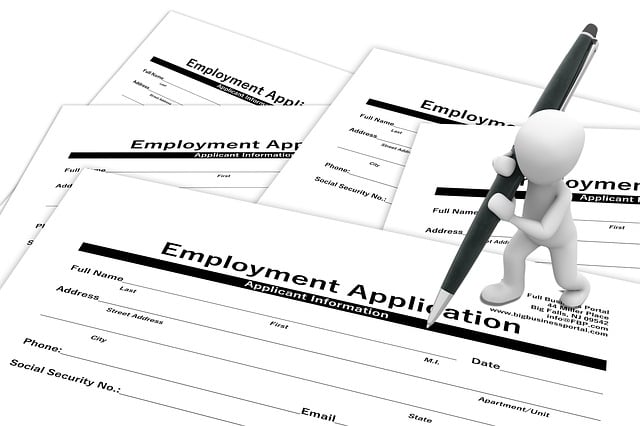TL;DR:
Precise translation of UK patent applications is vital to protect innovative ideas, avoid legal complications, and ensure global examination. Specialized translation services require translators expert in both language and patent law to accurately convey complex terminology. Choosing reliable partners with native proficiency, proven track records, relevant certifications (like ISO 17100 or patent application accreditations), and alignment with quality expectations is crucial for successful UK patent translation. Inaccurate translations can lead to rejections, highlighting the importance of professional services in this domain.
In the competitive world of intellectual property, precise UK patent translations are paramount. This article explores the intricate process behind ensuring accuracy in translation services for patent applications, delving into critical considerations and best practices. We highlight the significance of language expertise, industry-specific knowledge, and rigorous quality control measures. Through real-world case studies, we demonstrate how meticulous translations can safeguard the integrity of innovations, facilitating global protection for UK inventors. Discover key insights on choosing reliable partners for your translation needs.
- Understanding the Importance of Accuracy in UK Patent Translations
- The Process: Ensuring Quality and Precision in Translation Services
- Key Considerations for Choosing Reliable Translation Partners
- Case Studies: When Precision Matters in Patent Translations
Understanding the Importance of Accuracy in UK Patent Translations

In the realm of intellectual property, precision is paramount, especially when it comes to UK patent translations. Accuracy is crucial for several reasons; primarily, it ensures that the intent and scope of the original patent application are preserved in the translated document. This is vital for inventors and businesses seeking protection for their innovative ideas, as any ambiguity or error could lead to legal complications and potential misrepresentations of the invention’s claims.
Translation services for UK patents and patent applications must therefore adhere to strict standards. Professional translators with specialized knowledge in intellectual property law are essential to handle such documents. They not only possess linguistic expertise but also understand the technical jargon and legal nuances specific to patents, enabling them to convey complex ideas accurately across languages.
The Process: Ensuring Quality and Precision in Translation Services

The process of translating UK patents and patent applications demands a meticulous approach to ensure precision and quality. Professional translation services for such legal documents involve several critical steps. Firstly, translators must possess specialized knowledge in the field of patents, understanding technical jargon and terminology specific to this domain. They are trained to interpret complex scientific or engineering concepts accurately.
Quality assurance is paramount; editors review the translations for consistency, grammar, and syntax, ensuring the final document is error-free and reads naturally in the target language. This rigorous process guarantees that patent applications maintain their integrity and accuracy during translation, meeting legal requirements and facilitating efficient examination by patent offices worldwide.
Key Considerations for Choosing Reliable Translation Partners

When it comes to UK patent translations, precision is paramount. The complexity of patent language demands expert handling to ensure accurate and legally sound documentation. Choosing reliable translation partners is a critical step in this process. Key considerations include verifying their expertise in intellectual property (IP) translation, checking for native-level proficiency in both the source and target languages, and ensuring compliance with legal and technical terminology.
Reputation and experience are also crucial. Look for providers specializing in translation services for UK patents and patent applications, who have a proven track record of delivering high-quality work within tight deadlines. Certifications, such as ISO 17100 or specialized patent translations accreditations, further guarantee professionalism and competence. Additionally, direct communication with the translators involved can provide insights into their methodology, ensuring your expectations for precision and quality are met.
Case Studies: When Precision Matters in Patent Translations

In the realm of intellectual property, precision is paramount, especially when it comes to patent translations. Case studies illustrate the critical importance of accuracy in this specialized field. Take, for instance, a UK-based pharmaceutical company seeking global protection for their groundbreaking drug delivery system. Their initial translation left out key technical details, leading to misunderstandings during the examination process in a major European jurisdiction. This scenario highlights how crucial it is to have translation services that understand the nuances of patent language.
Another example involves a start-up developing an innovative agricultural technology. Inaccurate translations resulted in their patent application being rejected due to incorrect terminology and conceptual misinterpretations. These instances underscore the need for professional translators with expertise in both the subject matter and patent law, ensuring that every word is translated precisely, maintaining the original intent and meaning. Thus, when it comes to UK patent applications and translations, precision is not just desirable; it’s essential for success.
When it comes to UK patent translations, precision is paramount. As demonstrated through our detailed exploration of translation processes, key considerations, and real-world case studies, choosing the right partners for these specialized services can significantly impact the success of your patent applications. Opting for reputable firms offering high-quality, accurate translations ensures your innovative ideas are accurately represented, minimizing risks and maximizing protection in the UK market. Rely on expert translation services tailored to meet the stringent requirements of the UK patent system.
